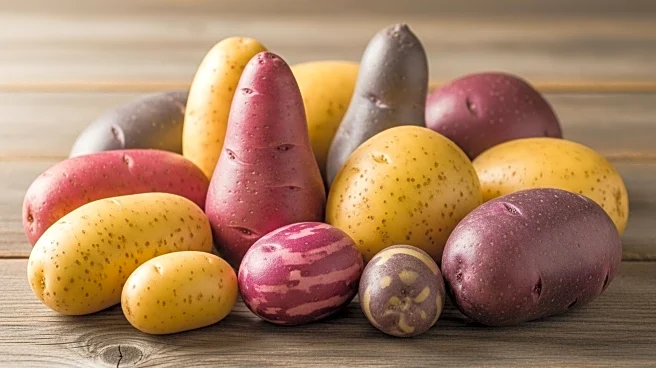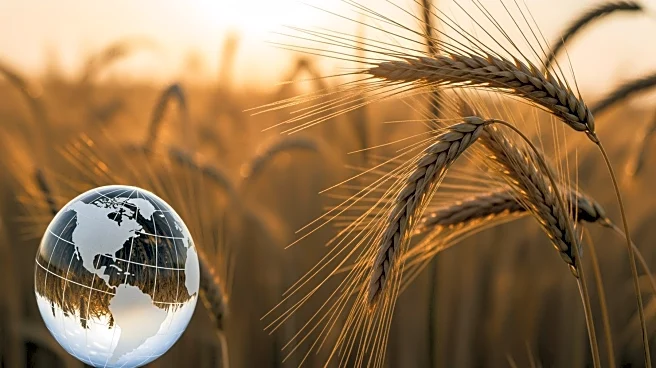What is the story about?
What's Happening?
Science journalist Katie Wu has highlighted the role of hybridization in the evolution of the modern potato. Wu's research, discussed in a recent podcast episode, reveals that the potato originated from a hybridization event between two ancient plant species. This discovery challenges the traditional view that hybridization often results in sterile or less viable offspring. Wu explains that while hybridization is typically seen as a biological dead-end, it can sometimes lead to beneficial traits, as evidenced by the potato's development. The potato's lineage is traced back to a union between a tomato plant and another plant species, etuberosum, which resulted in the creation of the potato. This finding is significant as it reshapes scientific understanding of hybridization and its potential to drive evolutionary innovation.
Why It's Important?
The discovery of hybridization's role in the potato's evolution has broader implications for agriculture and plant breeding. Understanding the genetic origins of staple crops like potatoes can inform breeding strategies to enhance disease resistance and improve crop yields. This knowledge could potentially lead to the development of new plant varieties that combine desirable traits from different species. Additionally, the research challenges long-held assumptions about hybridization, suggesting it can be a source of evolutionary innovation rather than a biological dead-end. This could influence future studies on plant genetics and the development of hybrid crops, impacting food security and agricultural practices.
What's Next?
The insights gained from this research may lead scientists to explore hybridization as a tool for developing new crop varieties. Researchers might investigate the possibility of creating plants that produce both tomatoes and potatoes, leveraging the genetic relationship between these species. This could result in novel agricultural products and potentially streamline food production processes. Furthermore, the study encourages a reevaluation of hybridization's role in evolution, prompting scientists to explore other instances where hybridization may have led to beneficial traits in plants and animals.
Beyond the Headlines
The exploration of hybridization in plant evolution raises ethical and scientific questions about genetic manipulation and biodiversity. As scientists consider using hybridization to create new plant varieties, they must also address concerns about genetic diversity and the ecological impact of introducing hybrid species into natural environments. The research underscores the complexity of evolutionary processes and the potential for hybridization to contribute to biodiversity, challenging traditional views and opening new avenues for scientific inquiry.














